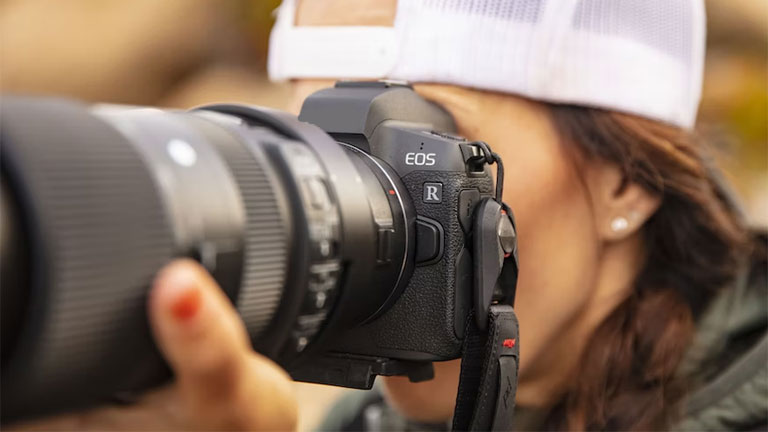
Starting a photography business can be an exciting and rewarding venture, but it can also be challenging and overwhelming, especially if you are just starting out. There are many factors to consider, from selecting the right equipment and building a portfolio to finding clients, setting prices, and marketing your services. Whether you are a seasoned photographer or just starting to explore the industry, this guide will provide you with the essential information and tips you need to start your own photography business and succeed in this competitive market. With hard work, determination, and a passion for photography, you can turn your creative vision into a thriving business. To start a photography business, you need to take the following steps:
- Define your niche and target market.
- Invest in equipment and gear.
- Build a portfolio that showcases your work.
- Create a business plan, including your marketing strategy and pricing structure.
- Register your business and obtain any necessary licenses and permits.
- Establish a strong online presence through a website, social media, and online platforms for selling your work.
- Network and connect with potential clients and other industry professionals.
- Continuously improve your skills and stay up-to-date with the latest industry trends and technologies.
What equipment do I need to start a photography business?
Starting a photography business requires a certain level of equipment and gear, including:
- Camera body: A professional-level digital camera with manual control options.
- Lenses: A selection of high-quality lenses for different shooting scenarios.
- Tripod: A sturdy tripod to keep your camera steady during long exposures or low-light conditions.
- Lighting equipment: Studio lights, reflectors, softboxes, and light stands.
- Memory cards and backup storage: High-capacity memory cards and backup storage solutions.
- Computer and editing software: A computer with sufficient processing power and high-quality photo editings software, such as Adobe Photoshop and Lightroom.
- Studio space: Depending on your niche and type of photography, you may need a dedicated space for shooting, such as a home studio or rental studio.
- Camera accessories: Additional accessories such as camera bags, batteries, filters, and cleaning equipment.
- It’s important to note that the exact equipment you need will depend on the type of photography you specialize in and your specific business needs.
For beginners starting a photography business, the following camera bodies and lenses are popular choices:
Camera Bodies:
- Canon EOS Rebel series
- Nikon D3500 or D5600 series
- Sony Alpha a6000 or a6100 series
- Fujifilm X-T30 or X-T4
Lenses:
- Canon EF 50mm f/1.8 STM
- Nikon AF-S DX NIKKOR 35mm f/1.8G
- Sony E 50mm f/1.8 OSS
- Fujifilm XF 18-55mm f/2.8-4 R LM OIS
These camera bodies and lenses are budget-friendly and provide good-quality results, while also allowing room for growth and future upgrades as your skills and business expand. Keep in mind that the right equipment for you may vary depending on your specific photography needs and niche.
How do I market my photography business?
Marketing your photography business effectively can help you reach new clients and grow your business. Here are some ideas you can consider:
- Create a professional website: A well-designed website that showcases your portfolio and showcases your brand is essential for attracting new clients and establishing credibility.
- Utilize social media: Platforms such as Instagram, Facebook, and Twitter can help you connect with potential clients, promote your work, and engage with your audience.
- Network and build relationships: Attend photography events, join photography communities, and reach out to other professionals in the industry to build relationships and gain exposure to your work.
- Offer promotions and special deals: Offering discounts, packages, and limited-time promotions can help attract new clients and incentivize repeat business.
- Collaborate with other businesses: Partner with local businesses, such as wedding planners, florists, and event venues, to offer bundled services and gain exposure to new clients.
- Seek out publications and features: Submit your work to photography blogs, magazines, and other publications to gain exposure and build your reputation.
- Ask for referrals: Encourage satisfied clients to refer their friends and family to your business.
- Invest in targeted advertising: Consider investing in targeted online advertising, such as Google Ads or Facebook Ads, to reach potential clients in your target market.
Remember, marketing is a continuous process, and it’s important to consistently refine and evaluate your strategy to find what works best for your photography business.
How do I set my photography prices?
Setting the right prices for your photography services can be a challenge, but it’s important to get it right in order to be competitive and generate a profitable income. Here are some things to consider when setting the prices:
- Cost of equipment and supplies: Calculate the cost of your equipment, gear, and supplies, and make sure to factor this into your pricing.
- Time and effort: Consider the time and effort required for each photo shoot, including pre-shoot preparations, post-processing, and editing.
- Competition: Research the prices of other wedding photographers in your area and niche, and make sure your prices are competitive, but not too low.
- Target market: Consider the income level and purchasing power of your target market, and adjust your prices accordingly.
- Quality of work: Higher quality work should command higher prices, so consider the level of quality you can provide and set prices accordingly.
- Packages and offerings: Offer packages and options at different price points to accommodate a range of budgets and needs.
- Location and travel: If you need to travel for photo shoots, make sure to factor in travel costs and add a fee for travel to your pricing.
It’s important to keep in mind that pricing is a dynamic aspect of your photography business, and you may need to adjust your prices over time as market conditions change and as you gain experience and refine your skills.
What legal requirements do I need to consider for a photography business?
Starting a photography business involves a number of legal considerations, including:
- Business registration: Register your business with the appropriate government agencies, such as the Internal Revenue Service (IRS) and your state’s Secretary of State.
- Tax compliance: Make sure to comply with all relevant tax laws, including registering for an Employer Identification Number (EIN), and filing and paying taxes regularly.
- Insurance: Consider obtaining liability insurance to protect your business from potential lawsuits and other financial losses.
- Contracts and agreements: Draft clear and comprehensive contracts and agreements with clients to define the terms of your services and to protect your rights and interests.
- Copyright laws: Make sure to comply with copyright laws and to obtain necessary licenses and permissions for using any copyrighted materials in your work.
- Model releases: Obtain written consent from your subjects for using their images for commercial purposes, such as for marketing and advertising.
- Trademarks: If you have a unique business name or logo, consider registering a trademark to protect your brand and intellectual property.
It’s important to seek the advice of a business attorney or legal professional to ensure that you are fully aware of and compliant with all relevant legal requirements for your photography business.
In conclusion, starting a photography business requires a combination of creative talent, technical skills, and business savvy. From selecting the right equipment and building a portfolio to finding clients, setting prices, and marketing your services, there are many factors to consider when launching a successful photography business. However, with hard work, determination, and a passion for photography, you can turn your creative vision into a thriving business that provides both financial and personal rewards. By staying up-to-date with industry trends, continuously improving your skills, and building a strong online presence, you can set yourself apart from the competition and achieve success in this exciting and dynamic field. Good luck on your photography business journey!




